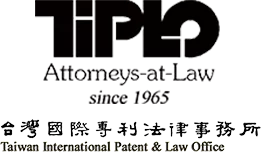Taiwan FTC and Qualcomm settle antitrust lawsuit
E180811Y4・E180810Y4 Sep. 2018(E226)
The Taiwan Fair Trade Commission (TFTC) issued a press release to the effect that they reached a settlement with Qualcomm Incorporated (Qualcomm), the world’s largest mobile phone chip supplier, in regard to the TFTC decision under Kung Chu Zi No. 106094 dated October 20, 2017 on the dispute over patent rights exercise (hereinafter “TFTC Decision”).
According to the settlement terms, Qualcomm agrees to make behavioral commitments to domestic mobile phone manufacturers and chip suppliers and also to submit periodical progress reports to the TFTC. Also, Qualcomm promises to not contest the TWD2.73 billion it has paid and to implement a five-year industrial investment plan in Taiwan. More detailed information concerning this settlement is provided below.
1. According to the TFTC, Qualcomm agrees to comply with and carry out the behavioral commitments in regard to cellular standard essential patents licensing (hereinafter “Cellular SEPs”) to Taiwanese mobile phone manufacturers and other commitments when it plans to license Cellular SEPs to Taiwanese chip suppliers, which is sufficient to eliminate the concerns about Qualcomm’s anti-competitive practices by its SEP licensing as stated in the TFTC Decision.
(1) Renegotiation of the license terms in good faith
Qualcomm commits to reinitiate negotiation in good faith over the terms of the patent license agreement to be signed by and between a licensed Taiwanese mobile phone manufacturer and Qualcomm if the licensed Taiwanese manufacturer finds any coercive or unreasonable terms in that agreement, and the licensed Taiwanese manufacturer and Qualcomm may negotiate to have their dispute involving the renegotiated terms resolved through other neutral procedures, such as court proceedings or arbitration.
(2) No termination of chip supply during negotiation
Qualcomm agrees that it will not terminate or threaten to terminate supply of cellular modem chips to the licensed Taiwanese manufacturer during the process of renegotiation or dispute resolution if the licensed manufacturer continues performing its obligations under the supply and licensing agreement and acts in good faith in renegotiations.
(3) No discriminatory treatment with respect to licensing of cellular SEPs
Qualcomm commits to equally treat Taiwanese mobile phone manufacturers and non-Taiwanese mobile phone manufacturers in a non-discriminatory manner in regard to its Cellular SEPs licensing program.
(4) Treatment of Taiwanese chip suppliers
Qualcomm agrees to offer an agreement upon a Taiwanese chip supplier’s request, which agreement shall provide that Qualcomm shall not initiate any action against the Taiwanese chip supplier with respect to any Cellular SEP claim without first offering to the supplier a license to such claim on fair, reasonable, and non-discriminatory terms and conditions.
(5) No more agreements on terms of rebates for exclusive dealings
Qualcomm commits that in its chip supply agreements signed with chip customers, there will be no such provisions as providing that the customer should agree to use Qualcomm’s cellular modem chips exclusively in exchange for royalty rebates and that such chip customer’s purchase of a specific ratio of its total chip purchases from Qualcomm conditions contractual license discount or royalty rebate.
(6) Periodical reports to the TFTC on the implementation status
Qualcomm also commits that, every 6 months for a period of 5 years, it will report to the TFTC with respect to the implementation status on its behavioral commitments. Also, Qualcomm will report to the TFTC concerning the completed amendments or new agreements with Taiwanese mobile phone manufacturers or Taiwanese chip suppliers within 30 days after execution of those agreements.
The TFTC indicates that in the TFTC Decision, Qualcomm is required to commence negotiation with competing chip companies and mobile phone manufacturers in good faith and cease conducts that involve antitrust concerns after the Decision is issued. The TFTC believes that the behavioral commitments proposed by Qualcomm in this settlement are sufficient to achieve the TFTC Decision’s regulatory purpose of maintaining free and fair competition.
2. According to the TFTC, the record high fine of TWD23.4 billion imposed by the TFTC’s antitrust ruling dropped to TWD2.7 billion in exchange for Qualcomm’s 5-year industrial investments plan in Taiwan, which investments include 5G collaborations, new market expansion, start-up and university collaborations, and establishment of a Taiwanese center for operations and manufacturing engineering. In addition, Qualcomm will work closely with the TFTC, the MOEA, the MOST, and other agencies of Taiwan to put into effect the aforesaid commercial initiatives and investments plan. The TFTC foresees that Qualcomm’s investments will benefit and enhance the overall economic interests and public welfare in the aspects of the semiconductor, cellular communication, and 5G technology development of Taiwan.
After comprehensive consideration, the TFTC has resolved and passed this antitrust case by its Commissioners’ Meeting on August 8, 2018 and reached the first-ever litigation settlement for public welfare with Qualcomm at the IP Court on August 9, 2018. Accordingly, the TFTC Decision is replaced with the settlement. The TFTC expects that this case would not only effectively build a fair competition environment for the cellular communication industry but also bring positive influence on the semiconductor, cellular communication and 5G technology in Taiwan. (August 2018)
/CCS














